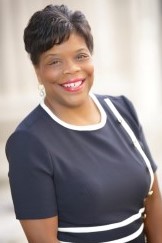Family learning as a catalyst for connection and belonging
Recently, the U.S. Surgeon General sounded the alarm on what he called an “epidemic of loneliness” affecting youth and parenting adults across the country. Citing stressors including “financial strain and economic instability, time demands, and concerns about children’s health and safety,” he called for “a shift in policies and programs to ensure all parents and caregivers can thrive.”
We’ve seen these same signs of strain in our work implementing programs and through our work alongside communities across the country. The challenges that families are facing aren’t new; but what is new is the sense of disconnection that many parenting adults feel from the social supports that have sustained and bolstered them in the past. This lack of meaningful and high quality social ties which create a sense of belonging and connectedness in communities has been dubbed “social poverty.” We see evidence of social poverty in many of the stressors that are highlighted in the Surgeon General’s report as well as in basic civic participation across communities. This fragmentation within communities impacts the ability for children and families to thrive and to seek opportunities that positively impact their well-being.

In his book Fragile Neighborhoods, Johns Hopkins University lecturer and leading expert on fragile states, Seth Kaplan, notes that “our mental health is determined not by how much money we have in our bank account, but by the number of friendships we have and by the strength of our social support system.” When these social supports fail–or in places where they never existed at all–families have told us that they feel adrift and alone, navigating siloed community resources that often function counter to their needs.
At NCFL, we have over 35 years of experience working with families across the country to improve their economic and academic outcomes, and that experience has shown us that family learning is a vehicle for transformation. We have learned that the most successful family learning models create systems of support that lift up family voice and strengthen social connections across families and within communities. Our deep, place-based work brings together parenting adults, equipping them with the knowledge and skills they need to advocate for themselves and their children.
It’s difficult to overstate the power of family learning to create deeper belonging and connectedness within communities and to positively impact family outcomes. A recent participant shared that family learning programming gave them the opportunity “to talk to families and remember that I’m not alone in the challenges parenting brings.” In program evaluations, parenting adults have highlighted the ways in which the social bonds created extend beyond the program itself to include emotional and spiritual support shared among group members. Others have described the ways in which these social bonds provided them with the confidence they needed to continue their growth beyond the conclusion of the program.
The Surgeon General’s report is a call to action for organizations and communities to act now in new and different ways, partnering to coordinate and align supports, programming, and policies. This is the work of the collective rather than individual organizations. NCFL stands ready and is fully committed to building a collaborative that is serious about and capable of this level of transformation. What is required is an approach that embeds family learning alongside existing community resources. By working together with schools, policy makers, and local organizations, we can transcend single programs and create coordinated and aligned systems of support that break down barriers for families and multiply our outcomes. In the process, we can strengthen the bonding and bridging ties among families–and between families and the community–that combat isolation and serve as the foundation for creating a deeper sense of belonging and connectedness.
We’ve already begun to build these Family Learning Communities (FLCs) alongside families and local partners in five communities across the country. Each FLC requires deep engagement from local government, funders, and school districts, informed by family voice, to create equitable solutions that effectively respond to and mitigate stressors and provide a level playing field in which all families can thrive.
We invite you to attend the upcoming 2024 Families Learning Conference, happening November 18-20 in Louisville, Kentucky, to learn more about NCFL Family Learning Communities and the efforts we’re taking to build connection and belonging. On Monday, November 18th, Tracy Teater, NCFL’s National Director of Community Impact, will lead a featured session alongside existing Family Learning Community partners to share successes and lessons learned. New this year, we’re also offering pre-conference masterclasses that provide attendees the opportunity to dive deeper into curated topics. Seth Kaplan will be leading one of the four available masterclasses, providing details on how to build upon existing community assets and support social cohesion to improve neighborhoods.
ABOUT THE AUTHOR

A lifelong educator and national thought leader for teaching and learning, Dr. Felicia C. Smith brings decades of valuable experience to advance NCFL’s mission of working to eradicate poverty through education solutions for families. Having served in a variety of leadership roles in P-12, higher education, nonprofit, and philanthropy, her career has allowed her to experience leading systems and develop a unique vantage point of a learner’s educational trajectory from preschool to adulthood. Smith holds an Ed.D. in education leadership and administration from the University of Kentucky, and an M.A. in elementary education with an emphasis on K-12 literacy development and B.S. in elementary education from the University of Louisville.